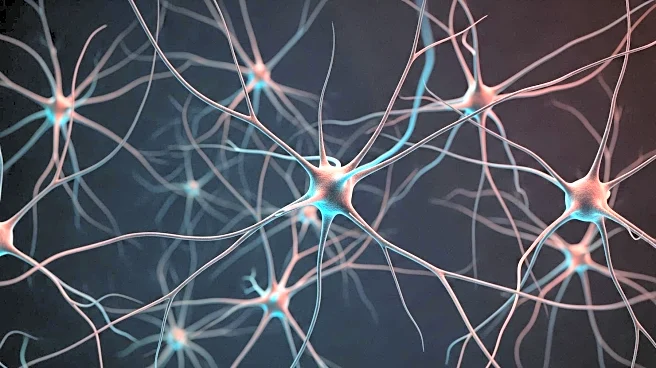What's Happening?
Dale Purves, a prominent neuroscientist and the George B Geller Professor of Neurobiology (Emeritus) at Duke University, has made significant contributions to understanding how the brain constructs reality through perception. Purves argues that the brain's primary function is to make associations based on past experiences to guide behavior, compensating for the imperfect sensory information humans receive. His research spans from trophic theory, which explains neuron survival based on target size, to the development of neural circuits and perception. Purves has shifted his focus over the years, from studying neuron-to-muscle connections to exploring perception and visual illusions, demonstrating that perception is an experience-based construction rather than an accurate reflection of reality.
Why It's Important?
Purves' work challenges traditional views of neuroscience by emphasizing the role of experience in shaping perception. This has implications for understanding human behavior and cognition, suggesting that perception is not innate but learned through interaction with the environment. His findings could influence fields such as psychology, artificial intelligence, and education, where understanding perception and learning processes are crucial. By highlighting the brain's reliance on learned associations, Purves' research may lead to new approaches in treating perceptual disorders and improving learning methodologies.
What's Next?
Purves' research opens avenues for further exploration into how perception is constructed and how it can be influenced or altered. Future studies may focus on the application of his findings in technology, such as developing more intuitive AI systems that mimic human perception. Additionally, his work may inspire new educational strategies that leverage experiential learning to enhance cognitive development. As neuroscience continues to evolve, Purves' insights could lead to breakthroughs in understanding the brain's adaptability and its implications for human behavior.
Beyond the Headlines
Purves' approach to neuroscience, focusing on big questions and original ideas, sets a precedent for scientific inquiry that prioritizes curiosity and innovation over conventional methods. His career exemplifies the importance of interdisciplinary thinking, combining philosophy and neuroscience to address complex questions about human perception. This perspective encourages a broader view of scientific research, where cross-disciplinary collaboration can lead to significant advancements in understanding the human mind.










